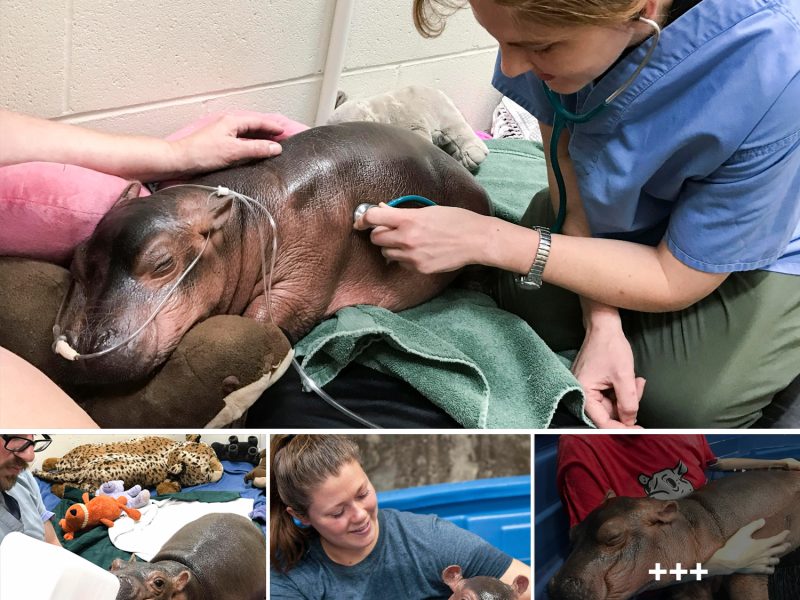During a recent eruption of Kilauea, a shield volcano on Hawaii’s Big Island, the roiling lava appeared to form a smiley face.
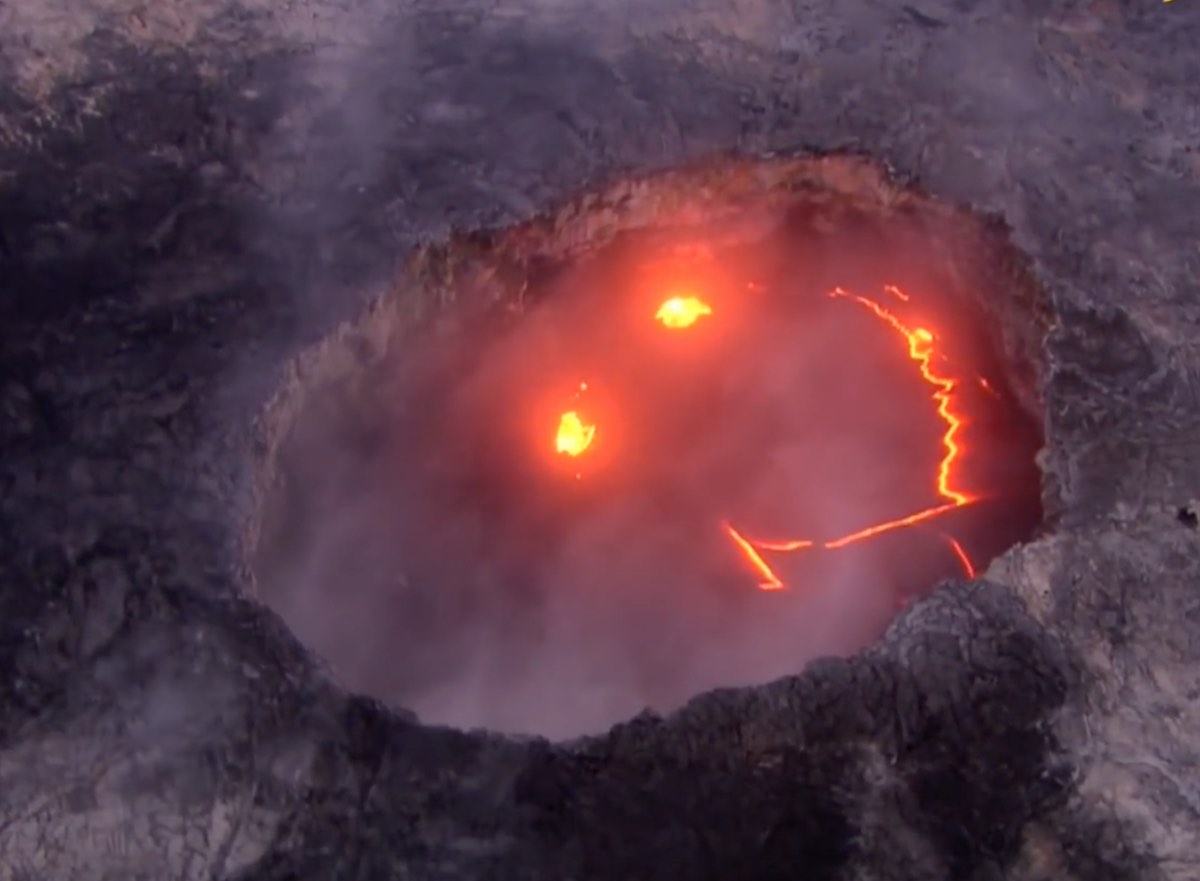
The lava in Kilauea’s crater formed what looks like a smiley face. Image credit: Mick Kalber/Paradise Helicopters via YouTube
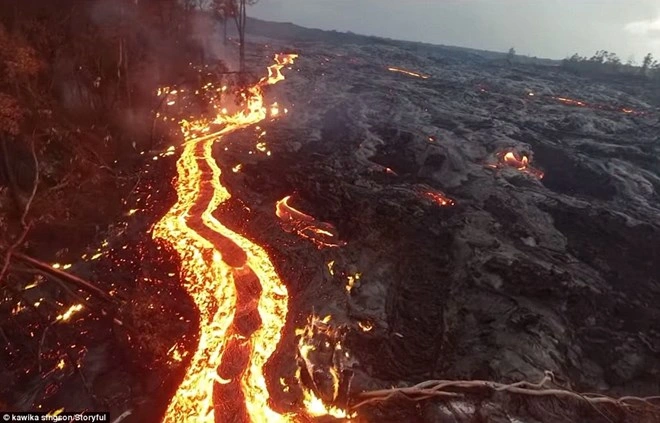
One of the most active volcanoes in the world, Kilauea has been erupting since 1983, with lava emerging from the Pu‘u ‘O‘o vent. As the smile appeared in the crater, lava from the volcano reached the Pacific Ocean for the first time in three years, CNN reported.
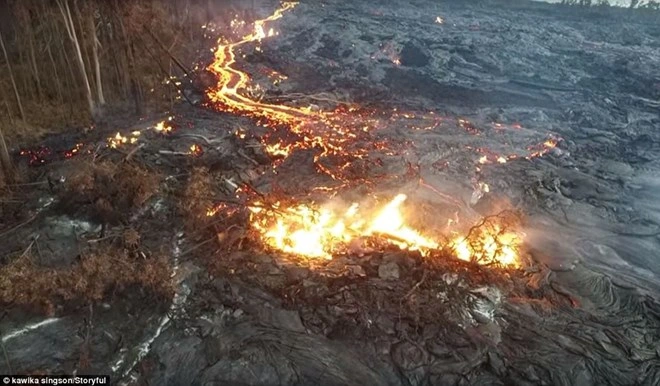
Incredible video footage of the volcano’s smiley face was captured from a helicopter by Mick Kalber of Tropical Visions Video/Paradise Helicopters.
While it may seem that Kilauea flaunted a smile stopping a million hearts around the Internet purposefully for the camera, there’s also a scientific explanation behind the bright spots and incandescent line that comprised it, according to Live Science.
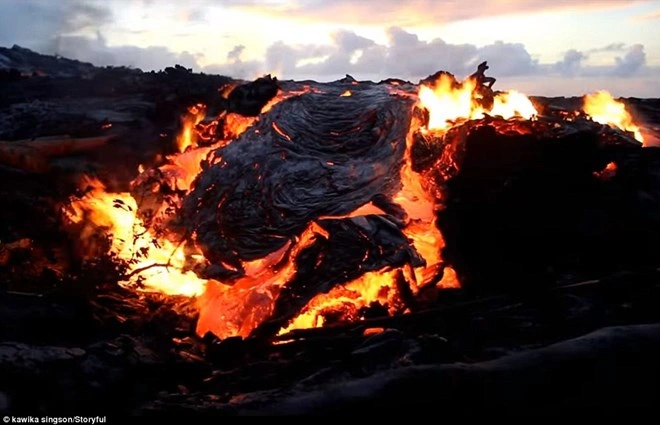
It’s all down to normal volcanic activity, after all. As the lava lake inside the crater circulates, lava upwelling and downwelling occurs on opposite sides of the lake. This countermovement often makes the molten lava spatter, producing bright spots on the dark, semi-solid lake surface. Circulation can also cause parts of the surface pull apart, creating lines by revealing the lava beneath. This time, these processes occurred in a pattern that resulted in the cheerful face.
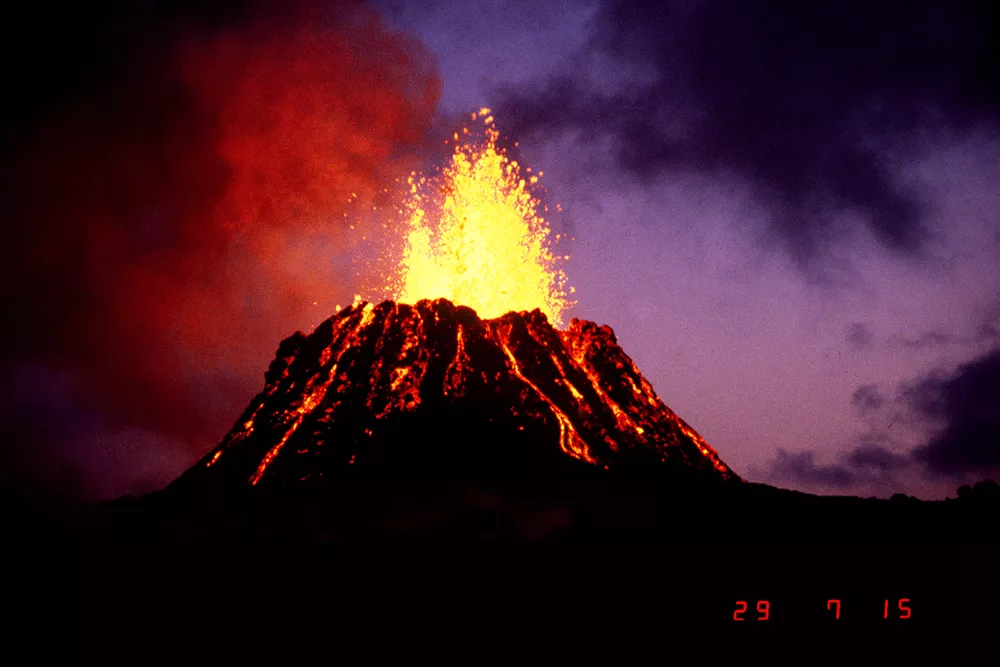
When Kilauea is not smiling. An aerial view of the erupting Pu’u ‘O’o crater on Hawaii’s Kilauea volcano taken at dusk on June 29, 1983, at the beginning of the present volcanic activity. Image credit: G.E. Ulrich, USGS
“The Pu’u ‘O’o lava lake just happened to produce two spattering sources (bright dots) that have been interpreted as ‘eyes’ and an incandescent line that has been interpreted as a ‘mouth’ — with the two lake surface features located relative to each other to produce the iconic symbol of a smiley face,” Janet Babb, a geologist with the USGS’ Hawaiian Volcano Observatory told Live Science.
Luckily for us, a cameraman on a helicopter was there at the right time to preserve the charming moment for posterity.

